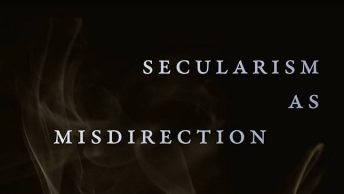In Jan Chaukidar, the Court ruled that all those who do not have the right to vote under s.62(5) of the Representation of the People Act, 1951 (1951 Act) cannot contest elections because they do not meet the eligibility criteria under ss. 4(d) and 5(c) of the 1951 Act. Under ss. 4 and 5 of the 1951 Act, to qualify to be a member of the Legislative Assembly or the Lok Sabha, a candidate has to be an ‘elector’. The term ‘elector’, as the Court has identified, is defined in s. 2(1)(e) of the 1951 Act as: ‘elector’ in relation to a constituency means a person whose name is entered in the electoral roll of that constituency for the time being in force and who is not subject to any of the disqualifications mentioned in section 16 of the Representation of the People Act, 1950 (1950 Act).
The relevant disqualification is to be found in s. 16(1)(c) of the 1950 Act: “Disqualifications for registration in an electoral roll: A person shall be disqualified for registration in an electoral roll if he……is for the time being disqualified from voting under the provisions of any law relating to corrupt practices and other offences in connection with elections.”
It is after this that the Supreme Court makes its problematic move. The judgment of Justices Patnaik and Mukhopadhaya brings in the denial of voting rights to certain categories of persons under s. 62(5) of the 1951 Act to be covered by the disqualification in s. 16(1)(c) of the 1950 Act.
s.62(5) of the 1951 Act states that “Right to vote: No person shall vote at any election if he is confined in a prison, whether under a sentence of imprisonment or transportation or otherwise, or is in the lawful custody of the police: Provided that nothing in this sub- section shall apply to a person subjected to preventive detention under any law for the time being in force.”
The relevant consideration for whether you can contest an election as per the provisions of ss. 4 and 5 of the 1951 Act is whether the candidate is registered on an electoral roll. s.16 of the 1950 Act lays down situations where an individual cannot be registered on an electoral roll. Readers will note that s. 16 of the 1950 Act is concerned with the disqualifications for registration in an electoral roll while s. 62 of the 1951 Act is concerned with the right to vote. The Supreme Court’s use of s. 16(1)(c) as the connection between the disqualification for registration in an electoral roll and the denial of voting right to those in prison or police custody is incorrect. s. 16(1)(c) is extremely clear that the disqualification from the electoral roll that it envisages arises only from provisions relating to “corrupt practices” and “other offences in connection with elections”. It does not seek to cover prisoners and those in police custody per se. However, s. 62(5) denies voting right to “all” prisoners and individuals in police custody.
Therefore, s. 62(5) of the 1951 Act is irrelevant to determining whether an individual is disqualified from being registered on an electoral roll under s.16 of the 1950 Act. And as per the definition of “elector” under s.2(1)(e) of the 1951 Act, the relevant provision is s. 16 of the 1950 Act. Therefore, an individual might not be entitled to vote under s.62(5) of the 1951 Act because she is in prison or police custody but that does not mean she is not entitled to be on an electoral roll. And what matters as far as the eligibility to contest elections is whether the individual is on an electoral roll.
The error of the Supreme Court lies in conflating the denial of voting rights under s. 62(5) of the 1951 Act and the disqualification of being on an electoral roll under s. 16(1)(c) of the 1950 Act. Of course, an individual can be disqualified from membership of Parliament or State Legislatures if she is convicted for any of of the offences listed in s.8 of the 1951 Act. However, it is very obvious that the scope of s.8 is very different from s. 62(5) of the 1951 Act.






Section 16(1)(c) of the 1950 Act states that a person shall be disqualified for registration in an
electoral roll if he
(c) is for the time being disqualified from voting under the provisions of any law relating to corrupt practices and other offences in connection with elections.
So, there are three ingredients:
(i) there must be disqualification from voting rights
(ii) such disqualification must be under the provisions of any law
(iii) such law must be relating to corrupt practices and other offences in connection with elections
The difference in interpretation, according to me, lies in the third ingredient. Your argument is that the specific provision of law disqualifying from voting must be in relation to corrupt practices and other offences in connection with elections, where as I see the reasoning of the judgment justified because the 1951 Act is a law relating to corrupt practices and offences [The Preamble to the 1951 Act says "An Act to provide for…the corrupt practices and other offences at or in connection with such elections"], and a provision of such law disqualifying a person from voting is S.62(5).
If ingredient (iii) were to be read otherwise, that the "provision of law" disqualifying a person from voting must be in relation to corrupt practices and other offences in relation with such elections, then there is no such specific provision to fit in this criteria. The words of a statute must be interpreted in order to make it operational.
Therefore, I feel the reasoning in the judgment is correct.